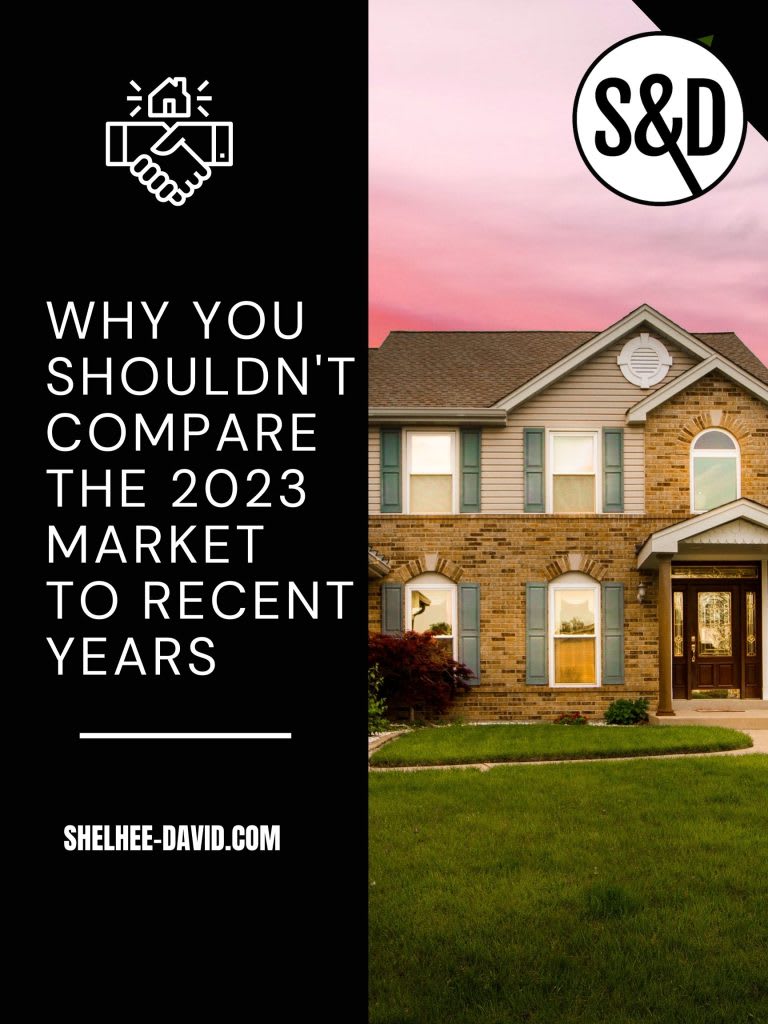The 2023 Market in Real Estate, if you’re talking to anyone about
investing in real estate in Los Angeles in 2023, you have likely heard someone caution you to wait for interest rates to come back down or for the market to settle down a bit more. There are a few problems with this idea, and we will explain why.
Here’s why it doesn’t make sense to wait for market conditions to return to what they were a couple years ago.
Why You Shouldn’t Compare the 2023 Market to Recent Years
2020 and 2021 Gave Us “unicorn” Market Conditions That We Do Not Expect to See Again
It is no secret that people buying homes, investing in income properties, and refinancing during 2020 and 2021 got some amazing deals. The combination of 2%-3% interest rates, dramatic increases in home values, and a virtual halt on foreclosures entering the market created what some call “unicorn” conditions in the market.
People were able to afford properties they never dreamed of and leverage their current investments to significantly grow their real estate portfolio. The problem with waiting for these conditions to return is that they almost certainly will not.
Interest rates are probably not going to come back down to 3% anywhere in the near future, and the forbearance on mortgages driven by the pandemic is also not coming back. These two factors are some of the primary drivers of the huge imbalance between supply and demand that drove up property values, while making it more affordable than every to borrow cash to buy.
The problem with waiting for these conditions to return is that they likely never will, and you could waste a lot of valuable time waiting for them.
Biggest Differences Between the 2023 Market and 2020
There can be several reasons why the 2023 market might be different from the 2020 market. Here are a few factors that could contribute to the differences:
- Economic Conditions: The overall economic conditions can have a significant impact on the real estate market. Between 2020 and 2023, there could have been changes in factors such as GDP growth, interest rates, inflation, and unemployment rates. These economic shifts can influence consumer confidence, lending practices, and investment decisions, thereby affecting the real estate market.
- Market Demand: Changes in market demand can result from various factors. For instance, in the wake of the COVID-19 pandemic, there may have been shifts in preferences for living arrangements and property types. Remote work trends and the desire for more space and amenities could lead to increased demand for suburban or rural properties, while urban areas may experience reduced demand. Changes in population growth, demographics, and lifestyle preferences can all contribute to differences in market demand.
- Housing Supply: The availability of housing inventory plays a vital role in shaping the real estate market. The time between 2020 and 2023 allows for new construction projects to be completed, potentially adding more housing supply to the market. Additionally, existing homeowners may have chosen to sell their properties or invest in renovations, altering the supply-demand dynamics in the market.
- Government Policies: Government policies and regulations can impact the real estate market significantly. Changes in zoning laws, tax incentives, subsidies, or lending regulations can affect both buyers and sellers. For example, policies related to mortgage rates, down payments, or property taxes can influence affordability and accessibility, thereby shaping the real estate market landscape.
- Investor Behavior: Investor sentiment and behavior can also contribute to differences between the 2020 and 2023 real estate markets. Investors may adjust their strategies and priorities based on evolving market conditions, economic outlook, and perceived risks and opportunities. Changes in investor activity can impact property prices, market liquidity, and overall market dynamics.
It’s important to note that the above factors are general considerations, and the specifics of how the 2023 market differs from 2020 can vary depending on the region, country, and even local factors. Real estate markets are complex and can be influenced by a wide range of variables, making it challenging to pinpoint any single cause for the differences observed.
We Are Still Seeing Record Low Interest Rates
The good news is, our current interest rates (though double what they were 2 years ago) are still record lows. When you talk with someone who was investing in real estate or buying their first home 30 years ago, you will quickly see just how good we still have it.
The bottom line is that buying a home with a 3% or a 7% interest rate is still a great deal. If you can afford the investment, you are still making a smart choice. The affordability of a home or an investment is far more dependent on whether you can pay the mortgage and cover the down payment and closing costs than it is on how low your interest rate is in comparison to last year.
Real Estate is Still a Great Investment
Homeownership and investing in income properties remain a great financial strategy in 2023. Los Angeles is a market that virtually guarantees solid appreciation in future years, building your equity while you enjoy living in one of the best places in the nation. Don’t spend too much time fretting over missed opportunities or rising interest rates; if you can afford it, don’t want for more “unicorn” conditions that we may not see ever again. The bottom line: 2023 is still a great time to invest in real estate, and maybe the best market conditions we will see for the next 5 years.
Ready to learn more about homes for sale in Los Angeles that can help you reach your goals in 2023?
Contact us any time.













